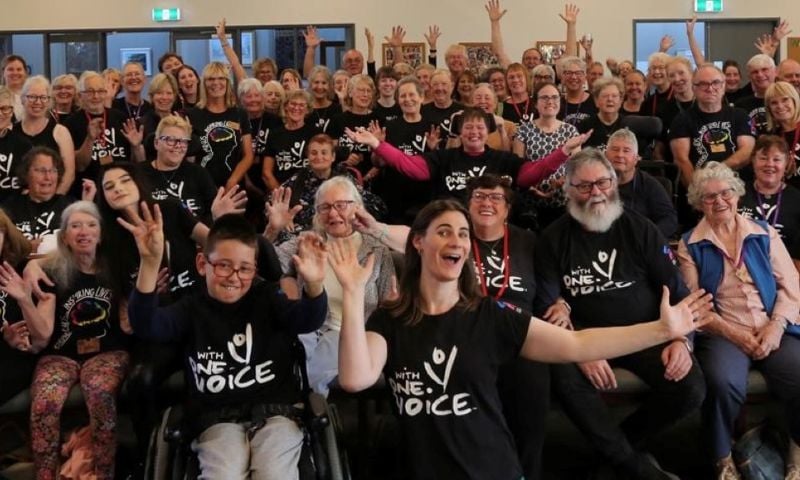The state of our mental health is at the forefront in these current times. With half of all Australians experiencing a mental illness at some point in their life, compounded by the pressures of the COVID-19 pandemic, there has never been a more important time to speak up and seek help. In response to the pandemic, the Federal Government announced that all Medicare-eligible Australians have access to telehealth consultations, psychology included. While we acknowledge that each mental health journey is unique and that mental health providers may work slightly differently in their delivery of telehealth psychology, let’s talk through some of the main steps to accessing support.
What is telehealth?
Telehealth psychology services enable people to receive counselling either via video sessions or over the phone. It is secure and confidential, just like face-to-face counselling. Keep in mind that there is no one system; there are several different platforms being used by providers to run video sessions, which they will be able to explain to you more.
Seeing your General Practitioner (GP)
A great first step is to see a GP. They can recommend some psychologists in your area and write a mental health care plan if you wish to receive Medicare rebates for telehealth psychology sessions. When booking the appointment, let the practice know if it is for a care plan so they can schedule enough time. If you don’t have a regular GP, the Health Direct website can help. The Australian Psychological Society can also assist with options for psychologists in your area through their Find a Psychologist database.
Do I need a mental health care plan?
To be eligible for Medicare rebates, telehealth psychology appointments do require a mental health care plan – a support plan for people experiencing mental health issues. Alternatively, depending on your private health insurance cover, private health insurance rebates can apply when seen outside of the Medicare system. If you’re a GMHBA member, you can contact us for assistance with determining your eligibility.
Tell me more about mental health care plans
A GP writes the mental health care plan in consultation with you. It identifies the type of health care needed, sets goals and can include a referral to a psychologist. Many GPs are currently issuing mental health care plans via telehealth. With the plan, you are entitled to Medicare rebates for 10 counselling sessions per calendar year. After the first six sessions, you see your doctor again for a review and another referral for more sessions if needed.
Next steps
Once you have chosen a psychologist or psychology practice that feels like the right fit for you, give them a call to learn more about their out of pocket costs and book an appointment. Some charge no out of pocket cost and some do, which can vary in amount. You can also contact your health insurer to find out what benefits they are paying towards telehealth psychology services, if you wish to be seen outside of the Medicare system. As part of our COVID-19 member support package, GMHBA members with extras cover can access benefits for telehealth consultations for psychology. Find out more.
Prior to your appointment
You might receive some questionnaires to complete prior to your first appointment. Some people also find it helpful to write a list of the things they want support with, to have with them while talking to the psychologist. Depending on the psychologist you go to, some will require you to download software for video telehealth appointments, which may be as simple as clicking on a link sent to you via text message or email.
What to expect with the psychologist
At the first appointment, your psychologist is likely to complete an assessment with you initially and then discuss a plan for future sessions. They may use some of the features available in the video software to write key points, draw diagrams, or bring up websites and resources along the way. All sessions provide a safe, collaborative and confidential space to talk about what’s going on for you. Try to be as open as possible. psychologists are trained to listen, support and help you find strategies to implement to improve and maintain your mental health.
It appears that COVID-19 has rapidly transformed the delivery of psychological care now and for the future. From telehealth being a modality mostly reserved for treating people with mental health issues living in rural and remote locations, it has now become the mainstream method of treatment. In fact, research has found that psychological treatment provided using online technology is as effective as a face-to-face appointment for a variety of mental health conditions, particularly anxiety and depression. While telehealth psychology might not be suitable for everyone, there are some definite advantages. It can offer consumers increased choice and flexibility as it is time efficient, easily accessible, convenient, and can be a more comfortable option for people who find face-to-face therapy difficult.
If you feel like you need support, remember that there’s always help available:
- Your GP is a great place to start
- beyondblue offer 24/7 phone support, online chat, email and community forums as well as links to professionals
- Lifeline Australia for crisis support
- For support finding your way through the health system in relation to mental health, the GMHBA Health Navigation line can provide members with guidance, referrals and location-based information
If you or someone you know needs immediate help, please contact Lifeline on 13 11 14.
Check in on your mental health and get rewarded
Your mental health and wellbeing is about being able to function to your full potential in your daily roles such as at work and home, cope with daily stresses, be involved in your community, and generally enjoy life. It is natural to have highs and lows in how you’re feeling in response to life’s challenges; this doesn’t necessarily mean you are experiencing a mental illness.



